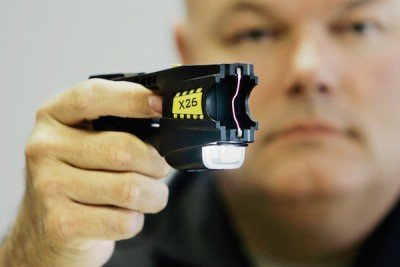The Massachusetts Supreme Judicial Court has decided that stun guns will no longer be protected under the Second Amendment, but one criminal law professor has filed a detailed amicus brief explaining exactly why the motion is unconstitutional.
As most of you very well know, stun guns are less-than-lethal neuromuscular incapacitation devices designed to temporarily immobilize a target. While an increasing number of police officers carry Tasers while on-duty, and even though stun guns are clearly far less dangerous than firearms, the electronic devices have been deemed “dangerous and unusual weapons” and are therefore excluded from the protection of the Second Amendment.
Eugene Volokh, a professor at the UCLA School of Law who specializes in criminal law and firearms regulation policy, has extensive experience on the subject and recently filed an amicus brief arguing against the court’s decision.
Volokh articulately raised several points, starting with the fact that being able to legally possess less-than-lethal weapons is in direct correlation to the right to keep and bear arms.
Volokh explained that stun guns may be a more practical alternative to firearms for those who have “religious or ethical compunctions about killing,” those who feel they may be “unable to pull the trigger on a deadly weapon,” those concerned with fatally shooting the wrong person, those who are “reluctant to kill a particular potential attacker,” those who are concerned a firearm “might be misused by their children or by a suicidal roommate,” or those firearm owners who want the option of using less-than-lethal force.
However, under the Massachusetts Supreme Judicial Court’s new ruling, all the above listed individuals are now denied the right to possess a stun gun.
Volokh enumerated several other points breaking down the court’s decision to label stun guns as “dangerous and unusual weapons.” His amicus brief mentions several court cases that clearly show stun guns are neither “dangerous” (when compared to a firearm, which is protected under the Second Amendment) nor “unusual.”
Volokh hopes his amicus will cause the courts to reconsider their decision to exclude stun guns from the protection of the Second Amendment.
(This article was a submission from freelance writer Brent Rogers)
